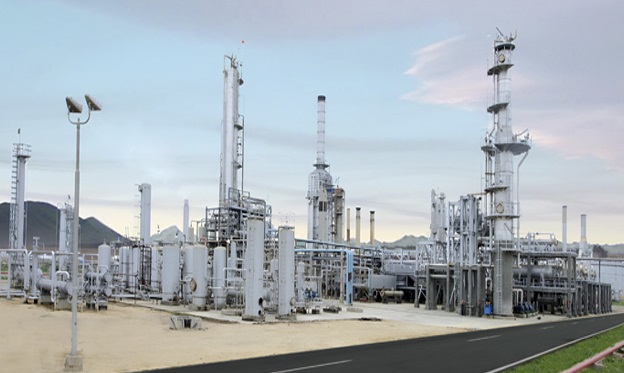If the year 2020 has taught us one thing, it is that misinformation has to be the greatest threat to societies around the world. Witness the flurry of ‘fake news’ circulating on Twitter, Facebook, and WhatsApp. The news, and its consequences, range from the truly random (No, Khala jaan, ginger does cure Covid-19), to the deeply damaging (see: the entirety of the Trump presidency).
The platform WhatsApp faces a particular challenge, since its messages are encrypted, and therefore cannot be policed in the same way Facebook and Twitter can be. WhatsApp has tried to fix the problem of misinformation by reducing the amount of times one can forward a message: in 2018 users could forward a message at once to 250 groups, which was reduced to five in 2019, and then one in 2020.
Still, WhatsApp forwards ca The content in this publication is expensive to produce. But unlike other journalistic outfits, business publications have to cover the very organizations that directly give them advertisements. Hence, this large source of revenue, which is the lifeblood of other media houses, is severely compromised on account of Profit’s no-compromise policy when it comes to our reporting. No wonder, Profit has lost multiple ad deals, worth tens of millions of rupees, due to stories that held big businesses to account. Hence, for our work to continue unfettered, it must be supported by discerning readers who know the value of quality business journalism, not just for the economy but for the society as a whole.To read the full article, subscribe and support independent business journalism in Pakistan
Here is what happened. In the past week, information was circulated across WhatsApp groups that Byco had begun production from two units, the Diesel Hydro DeSulphurising Unit, and the Fluid Cracking Unit, through its subsidiary Byco Industries Incorporated.
The share price of Byco increased in light of this information. For context: Byco’s share price on December 30 was Rs8.85 per share. On January 1, the share’s price stood at Rs8.79. And yet, all of a sudden, the share began to trade at Rs9.79 on January 6, and then Rs9.81 on January 7, reaching a peak of Rs10.41 on January 8 (a Friday).
This 18.4% rise over the span of about one week was enough to warrant a response by Byco. On the following Monday, January 11, the company issued a notice to the Pakistan Stock Exchange calling the circulating information false.
“The company strongly denies the accuracy of the information stated in the above WhatsApp circulation and makes it clear that it does not reflect the factual position on the matter,” the notice read.
It went on to clarify that at its last Extraordinary General Meeting held on April 2, 2020, it had instituted an upgrade project. This consisted of installing a Fluid Catalytic Cracking (FCC) unit, along with its associated plants, to crack furnace oil into gas and diesel; and a Diesel Hydro Desulfurization (DHDS) unit to remove sulfur from diesel.
Byco said that the company had made progress on the project, but that a groundbreaking ceremony was held on Saturday, January 9, 2021 to commence the civil construction of the project.
“We further clarify that the company, its sponsors, major shareholders and directors have no connection to the above cited false WhatsApp circulation which has apparently caused an unexpected rally in Company’s shares traded on the PSX,” the notice said.
It seems that in the build up to the groundbreaking ceremony, the fake news began to circulate. The groundbreaking ceremony itself, a clip of which can be found online, is in of itself quite standard: around 100 people seated on tables under a marquee , with the usual congratulatory messages, and team building speeches.
It is no surprise that these projects were announced in April 2020: last year, Byco had to innovate as Covid-19 threw a wrench in the oil industry’s plans, and definitely in Byco’s own rise. The company was founded by Parvez Abbasi in 1995. Construction on the first oil refinery with a capacity of 30,000 barrels per day started in 2011, at Mouza Kund, Hub, Balochistan, while commercial production began from July 2004. In 2007, Byco set up its first retail outlet in Sukkur (it is now present in 80 countries). Then in December 2015, Byco commissioned what was at the time the largest refinery in the country, with a capacity of 120,000 barrels a day.
Between 2015 and 2018, the company’s net income was positive, increasing from Rs72 million in 2015, to above Rs1000 million in 2016, all the way to Rs5,020 million in 2018. Its net sales hovered below the Rs10,000 million mark, before jumping to Rs166,290 million in 2018. And yet despite net sales increasing in 2019 and 2020, the company made a loss of Rs1,684 million in 2019, and Rs2,431 million in 2020.
In the company’s annual report of 2020, Byco pointed to the consistent decline in local consumption of High Sulfur Furnace Oil (HSFO), which stood at one third of what it was in 2017. Then, because of the International Maritime Organization’s 2020 restriction on the use of HSFO as bunker fuel from January 2020, HSFO prices nose dived in the international market between November 2019 to March 2020.
This is what spurred Byco in the first place to set up the FCC unit which will allow the company to convert HSFO into motor spirit and diesel.
The government has also changed the specification of imported motor spirit and diesel to Euro V, which means refineries now have to upgrade to be able to produce those specifications. This is what the DHDS unit is meant for: to reduce the sulfur content and produce Euro V compliant diesel.




